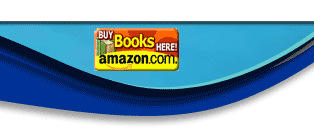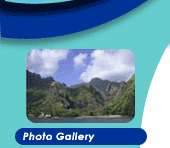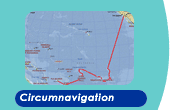










Letter #2, Voyage 5
Anchored at: 12º 11.76 S, 136º 42.23 E
Gove, New Territory , Australia
July 3, 2005
Dearest Friends and Rellies,
This is Gove. You probably never heard of Gove. It is a port on the western shore of the Gulf of Carpentaria . The nearest town is Nhulunbuy, about 10 miles away-not that you've heard of that either! It is a basic, little town of about 3,500 souls. Half of the inhabitants work for the Alcan alumina mine and refinery located here.
Pacific Bliss is swinging around in a 15-20 knot wind in a huge bay called Gove Harbor about 300 yards from the Yacht Club with about 70 other vessels-a dozen or so sailing yachts also headed for Darwin, a few fishing boats and liveaboards, and a few decrepit boats that are never lit at night. It is a wild anchorage, despite the number of boats here. The harbor provides little protection from the whistling wind except that is has less wave height than the Gulf we crossed. To get to shore is quite an ordeal; we didn't even attempt it yesterday, with the wind freshening. We have to put on foul weather jackets for the wet and salty dinghy ride, and for the most recent trips I've added a garbage bag pulled up around my waist to keep my bottom dry, with two holes cut in the bottom for my feet. A great fashion statement! Once at the club, there is hot food, hot showers, and lots of drinks. Late every afternoon, the workers from the near-by refinery stop in for after-work drinks, easy recognizable in their orange safety gear with silver glow-in-the-dark stripes. And there are always aborigines hanging around the club drinking. Their tribe makes a royalty from the mine, since this is aboriginal land, so why work? There is a Laundromat of sorts here with two washers and one rusty, decrepit dryer that still manages to work-and a waiting line of yachties ready to use them until they fall apart. One French couple (on their second circumnavigation, can you imagine that?) said that the old dryers and washers lying behind the facilities were the ones they had used when they were here eight years ago. Once we've washed ourselves and our clothes though, it is difficult to keep them dry and salt-free on the rough dinghy ride back to Pacific Bliss.
There are characters at the Club to make life interesting. We've come to know Gunter, a Prussian from Berlin , who stopped here 42 years ago with his yacht and stayed. Married an Aussie who lives on his boat with him. Both collect retirement benefits and are content with their lives. He hangs around the Club and they both go into the town every other day. Once in awhile, they sail across the Gulf to Weipa, where they have grandchildren now. They occasionally go back to Germany , but after three weeks there, Gunter is itching to return to Gove. He has a zillion tales of life here in the land of never-never. Back in the '70s, for example, he hunted crocs and sold the skins.
Everything one tries to do here is an effort and an adventure. Take fueling, for example. Not one guide book or SSB Net advisory said anything about the fuel dock here being designed for freighters. We made reservations with Perkins Fuel to be at the dock between 0700 and 0800, when they opened. We also called to reserve space for our buddy boat, MiGitana, a heavy Hans Christian 50-plus-foot wooden ketch. "No problem both of you docking one behind the other," said the operator. "We just want you in early before the wind kicks up. And I'm the only bloke working here this week." At that time our crew, Kevin and Alan, were still here. They could help both yachts, we thought. Jump off Pacific Bliss onto the dock, tie up, etc. etc. Well, the huge construction-size tractor tires only reached down to perhaps eighteen inches on the relatively high freeboard of Pacific Bliss. We managed to fuel, with the line handed down from the men high on top, but not without getting fuel all over the deck, as the wind began to kick up. Afterwards, the worker handed down to detergent to clean up the fuel, and shortly Gunter was slipping and sliding all over the gas-and-detergent mixture. Then he tried to hand up his credit card to pay. "No, you have to come up," said the man.
"Up there?"
"Just give me your hand; I'll pull you onto the tractor tire." Somehow, he made it. But it was more difficult for MiGitana, since their freeboard did not even reach the tires. They slammed against the high posts in the increasing wind, bent a stanchion, while their crew, Anne and Joe, tried to fend the yacht off the barnacled posts, with Michelle at the helm, trying to turn out against the wind. "Alan! Get over here," someone cried, and Alan had climbed up to the tractor tires and jumped onto MiGitana to fend off.
We loaned MiGitana our four spare jerry cans which they added to their four. Joe subsequently made an auto trip into the town's service station to fill the cans and bring them back to their re-anchored boat. Our fueling cost was $1.13 per liter, vs. theirs at $2.60. But Perkins refuses to load fuel into jerry cans on dinghies, worried about spillage into the bay, environmental concerns, lawsuits and such. Even out here!
There are no cars available to rent in Nhulunbuy, and no hotel or motel rooms to be had. The new construction workers brought in to handle the Alcan plant Phase #3 expansion have taken them all. Bring more you say? How? I looked at a detailed road map posted outside the ATM and couldn't believe what I saw. To get out of town requires a permit to drive through aboriginal land; then there's 400 miles of unpaved, heavily corrugated dirt road to master before reaching the "highway", a two-lane sealed road to Katherine Gorge and on to Darwin . This route is closed during the WET, lasting from December through April. The logical way out of town is to fly. Alcan paid for and installed a regional airport with daily flights to Cairns and Darwin. Workers are paid an $18,000 allowance on top of their regular pay (about $100,000 per year) to fly out when they get stir-crazy. Their lives are highly subsidized. They pay $8 per month for their housing-single motel-style rooms up to three-bedroom homes, depending on family size-utilities included. There's an Olympic-size swimming pool in town. The Arnhem Club, the local RSL (retired serviceman's club), is well-equipped. Not only do they have great pizzas and buffets and the usual slot machines and horserace betting; they have tennis courts, a children's' playyard, their own bottle shop, etc.
The yachtie anchored next to us, Roman on Dragonfly, had a car loaned to him from an Aussie couple from town they had just met. So we were able to take a tour to the Aboriginal Art and Crafts Center and to the Museum, another 15 miles out of town, followed by an extremely filling pizza at the Arnhem Club. We even had an opportunity to catch up on the news with the purchase of The Australian. As you might imagine, everyone here is friendly and laid-back. Hitchhiking into town is not a problem and there are taxis running (expensive, though).
Last Friday, we took a tour from town sponsored by Alcan. They give tours once a week, every Friday morning. Their bus picked us up across from the pool in town, and took us to their training facility where we watched a movie about how they rehabilitate the land to its original state afterwards and learned about the various grades of bauxite. From there, we were transported to an open-pit mine, to view the loading operation at work. Finally, we were bussed along an 18 km conveyor belt road to the refinery that we can see from our anchorage. The chemical process employed was quite interesting.
A Sell-Your-Boat Kind of Crossing. I heard this sailor's term for the first time upon having our first arrival beer at the Gove Yacht Club. Lance of Free Bird first said it. Lance, a Duluth , Minnesota native, is sailing on to Darwin with his wife and two children, both under 3. All except him were sick on board during the three-day, two-night crossing of the Gulf. "What did you think of the crossing?" I asked Roman of Dragonfly. "Horrendous," he answered. "A sell-your-boat kind of passage." Joe of MiGitana said he'd never wanted to do an overnight crossing again. But then, that was a few days ago. Joe and Michelle plan to buddy boat with us to Darwin , and today we are planning a two-overnight crossing from the Wessells to Port Essington as a part of that voyage. Sailors are a strange lot. After about three days, we all tend to forget the horrors of the sea and begin to think about venturing out again. But then, what else is there to do? Resale values in Gove are not too good.
Our crossing on Pacific Bliss was not dangerous. The only dry-mouth adrenalin moment came when we lost our satellite fix for over 20 minutes, only a few miles before the waypoint to turn into Gove. We appeared to be in a satellite hole. Otherwise, the passage was just plain uncomfortable, usually on a forward beam reach in mostly 20-25 knot winds. The waves-not the wind-were the problem. The Gulf of Carpentaria is relatively shallow, and is known for its steep, sharp waves. During the first day of our passage from the little harbor of Seisia , on the Gulf's eastern shore, the winds came from all directions: East to ENE to South to SSW even, requiring constant sail adjustment, which was done by Kevin and Gunter. Once the seas were totally confused, only then did the Southeast Trades set in. Oh joy! We endured wave heights of 3 meters, (nine feet) that's 18 feet total height from bottom to crest.
Oops! Time to plan the navigation for the next leg to Darwin . Look to this website for more postings from there.
Love, Lois and Gunter
|
|
 |
 |
 |
|
|||||||||
|
|
|
||||||||||||
|
|
|
||||||||||||
|
|
|
||||||||||||
|
|
|
|
|
|
|
|
|
|
|||||
|
|
|
||||||||||||
|
|
|
||||||||||||
 |
 |
|
|||||||||||
|
|
|
||||||||||||
|
|
|
||||||||||||
|
|
|
||||||||||||
 |
|
||||||||||||
|
|
|
||||||||||||
|
|
|
||||||||||||
 |
|
||||||||||||
 |
|
||||||||||||
 |
|
||||||||||||
 |
|
||||||||||||
 |
|
||||||||||||
|
|
|
|
|
|
|
|
|
|
|
|
|
|
|
